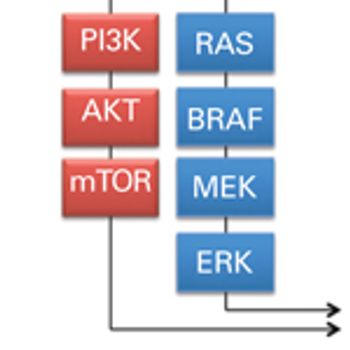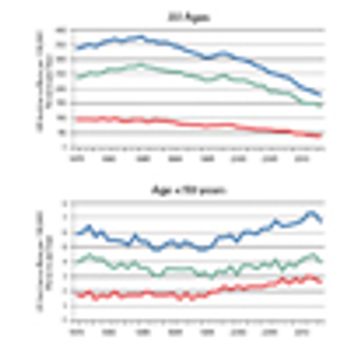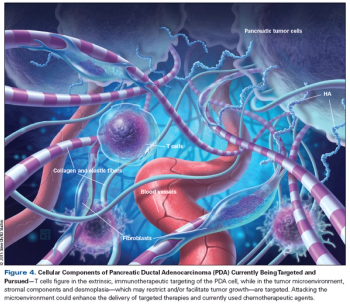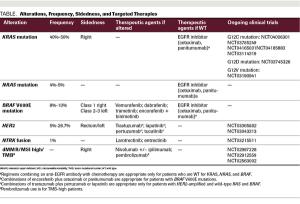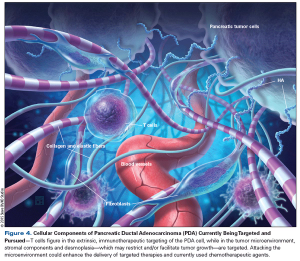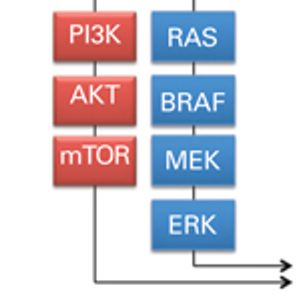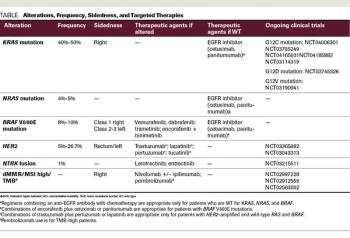
ABSTRACT: Colorectal cancer (CRC) is a commonly diagnosed malignancy. Although chemotherapy remains the backbone of treatment, the landscape of treating metastatic CRC (mCRC) is changing with the understanding of its heterogeneity and molecular blueprint. Colon cancer sidedness has proven to hold prognostic implications, with right-sided tumors having higher incidence of BRAF and KRAS mutations and being microsatellite instability–high (MSI-H); overall, they have a worse prognosis compared with left sided-tumors. Results of molecular research have demonstrated the need to profile each mCRC patient for RAS and BRAF mutations, MSI-H status, HER2 amplifications, and NTRK fusions. Ongoing clinical trials using targeted agents aim to further improve survival outcomes. We emphasize the epidemiology, knowledge of primary tumor location, and mutational landscape of mCRC, as well as novel treatment options for patients harboring unique subtypes of these characteristics.


